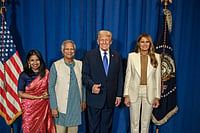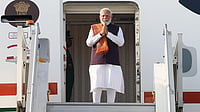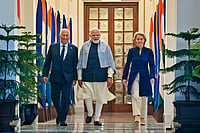Confusion surrounds India’s involvement in the Chabahar-Zahedan railway project following media reports that Iran had wanted New Delhi out. The reason given by Iran was delayed funding by India. Coming as it does on the back of reports of a massive US $400 billion strategic partnership deal being finalised between Iran and China, the news naturally created quite a stir.
Chabahar was a big-ticket item when it was first conceived as a way to bypass Pakistan and open Indian goods to markets in Afghanistan and the larger Central Asian region. Pakistan does not allow India access through its territory to Afghanistan. India was to construct a 628 km rail track along the Iran Afghanistan border to help carry goods from Chabahar port to the landlocked country. The Chabahar project was pivotal to India’s strategic interest.
The port project which was initiated in 2003 took a long time to materialise, thanks to the US sanctions on Iran and the threat that private companies breaking the ban would not be allowed to do business in America or make use of its financial institutions. But by 2016, when Prime Minister Narendra Modi visited Iran, the port was operational. In October 2017, when India’s first consignment of wheat to Afghanistan was flagged off by the late Sushma Swaraj, through Chabahar, there were celebrations in Delhi and Kabul.
An Indian company has been operating part of the port since 2018 and has since scaled up traffic. The Indian operated section of the port handled 12 lakh tonnes of bulk cargo and 8200 containers.
The MEA, in its weekly briefing on Thursday, denied reports that India was out of the Chabahar-Zahedan railway project. Instead, New Delhi pointed a finger at Iran. MEA spokesman Anurag Srivastava said that IRCON, India’s leading public sector engineering and construction company had been instructed to do a feasibility report for the railway project. Detailed discussions were held on several aspects of the project considering the “financial challenges” (an obvious reference to Western sanctions) that Iran was facing. During the 19th Indo-Iranian Joint Commission meeting in Iran last December, the railway project was reviewed.
“The Iranian side was to nominate an authorised entity to finalise outstanding technical and financial issues. This is still awaited.” Clearly according to New Delhi, the ball is in Iran’s court.
Whoever is to blame is not clear. But the fact remains neither India nor Iran seem particularly interested. Tehran which has literally been hounded out of the nuclear agreement by President Donald Trump, regards India’s growing closeness to the US with suspicion. The fact that India refused to stand-up to US sanctions on lifting Iranian oil, irritated Iran. Foreign minister Javad Zarif expressed his unhappiness last year to visiting Indian journalists in Tehran. “Expected India to be more resilient to US pressure,” Jarif said. And as the US-China saber-rattling continues, Iran in desperate need of funds will certainly prefer China’s embrace.



























